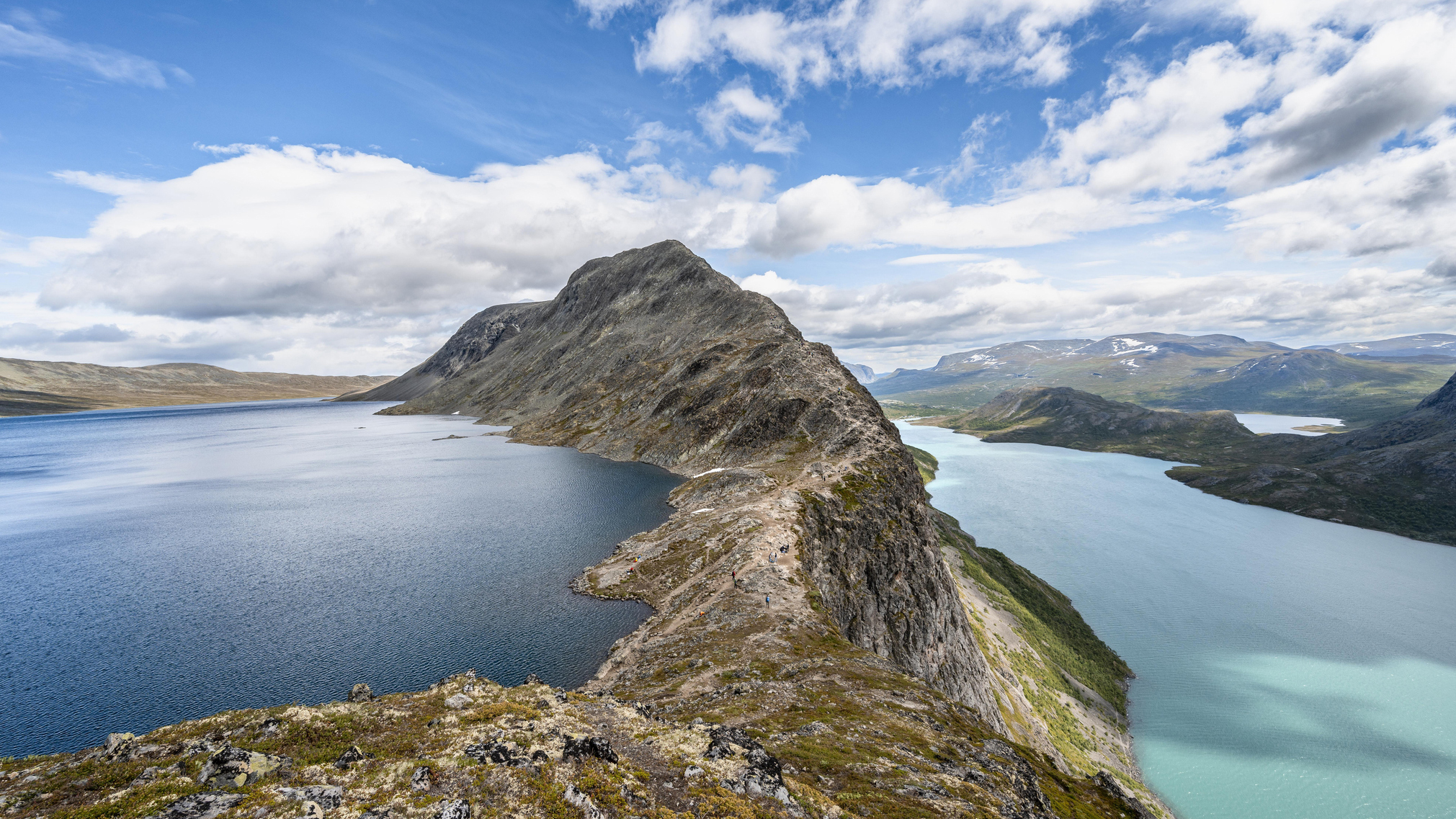Mountaineering vs rock climbing: what’s the difference?
We take a look at the similarities and differences between mountaineering vs rock climbing to help you understand the finer details of these extreme exploits
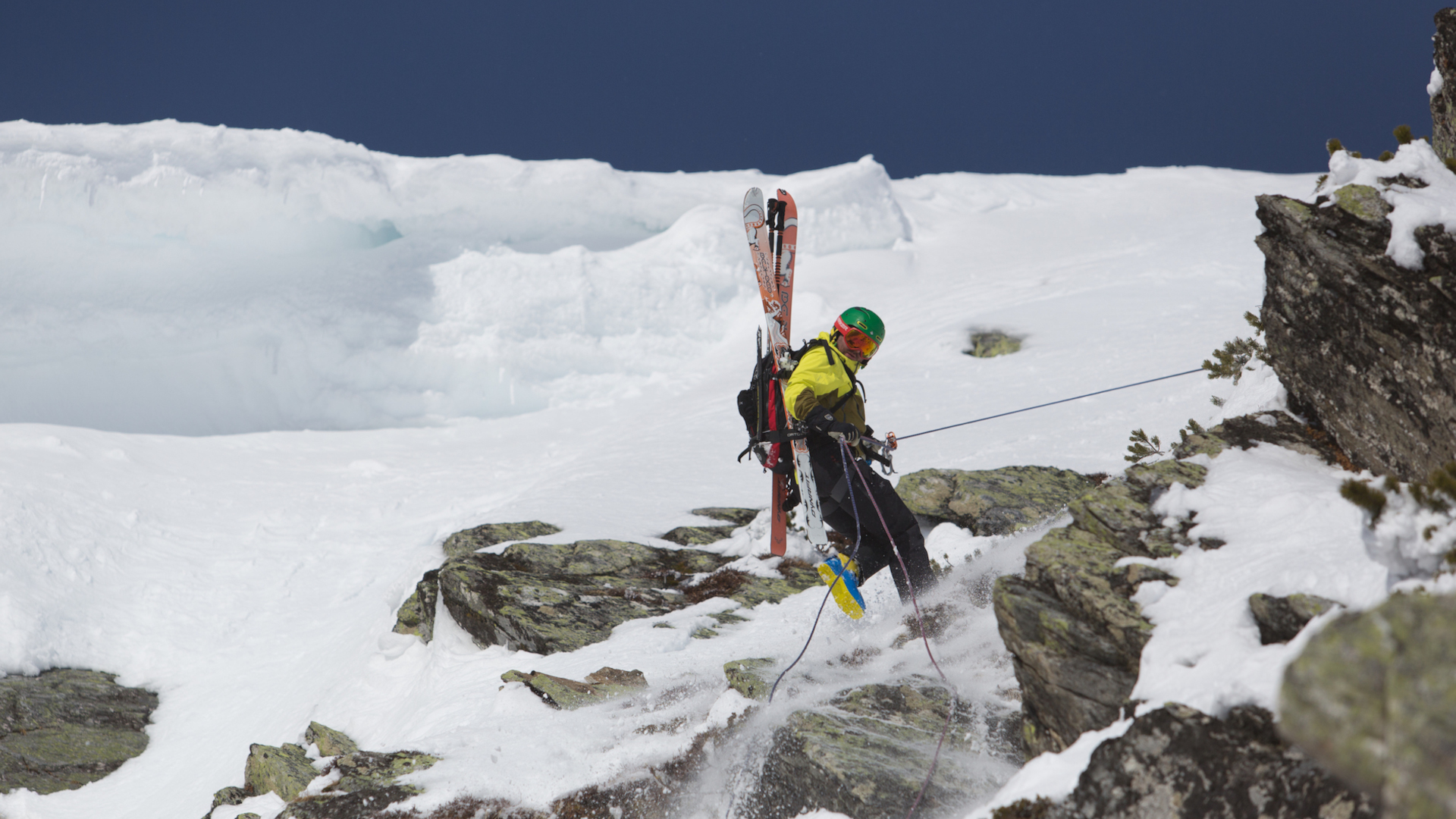
In the world of adventure, rock climbing and mountaineering seem to have a lot of overlap. Still images and videos of both activities show fearless explorers tackling mountains wearing harnesses and using ropes, but are these two pursuits actually the same thing? We take a look at the similarities and differences between mountaineering vs rock climbing to help you understand the finer details of these extreme exploits.
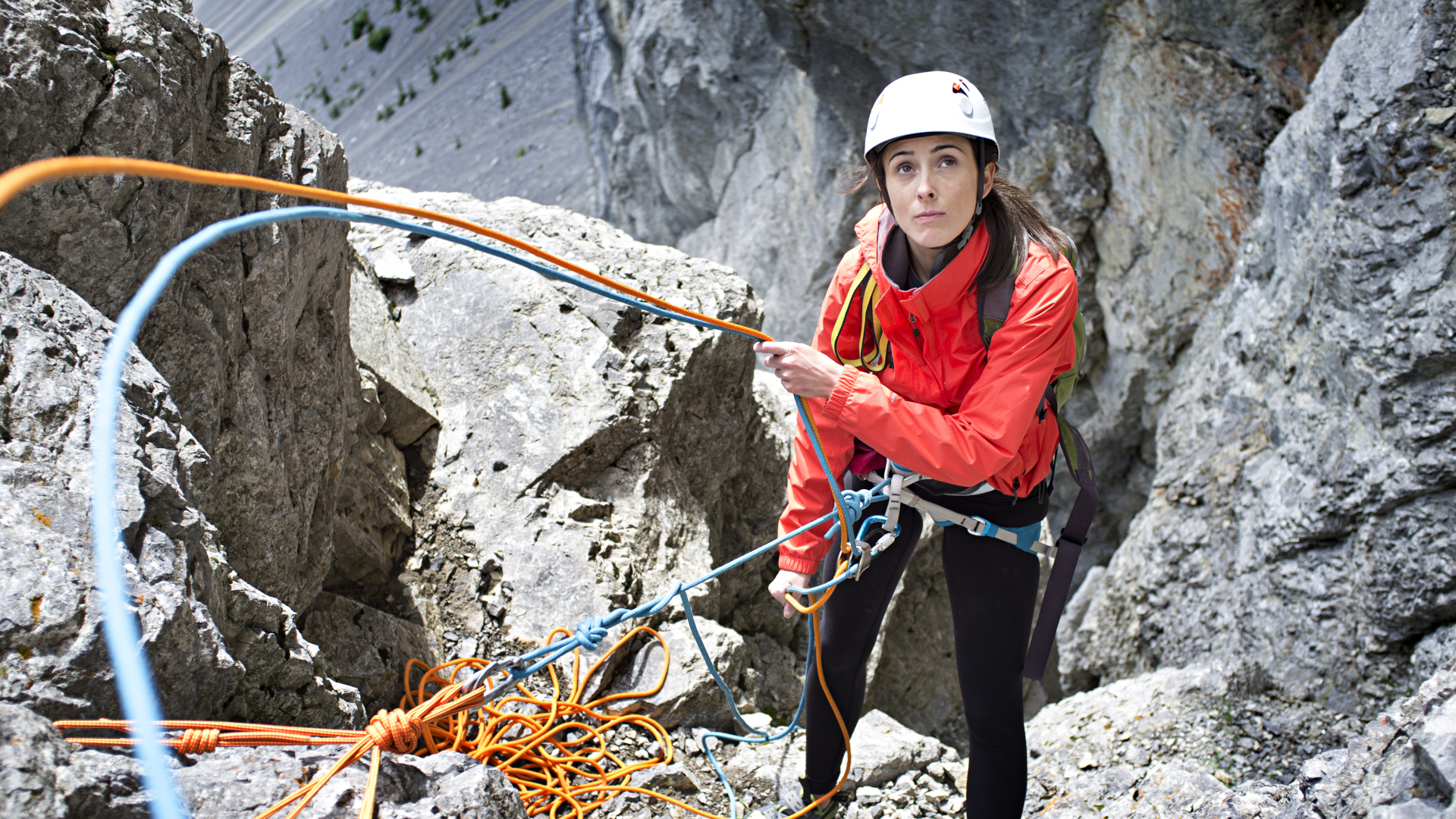
Mountaineering vs rock climbing: what are they?
For starters, rock climbing and mountaineering are definitely not synonymous, but they do share a lot of things in common. Rock climbing is the sport of scaling, descending or traversing rock faces. There are lots of subtypes of rock climbing, from trad climbing where you place your own gear, to sport climbing where you use pre-existing bolts, gear-free bouldering, and even rappelling, where you climb down a rock face. However, though there are different categories of rock climbing, it is a specific and well-defined sport.
Mountaineering, on the other hand, is a more general term for the activity of exploring mountains, usually with the goal of reaching the summit. The mountain and the conditions will determine what that entails, but mountaineering involves multiple sports such as hiking, scrambling, skiing, ice climbing and, yes, even rock climbing.
Now that you understand what the two terms mean, let’s take a closer look at their similarities and differences.
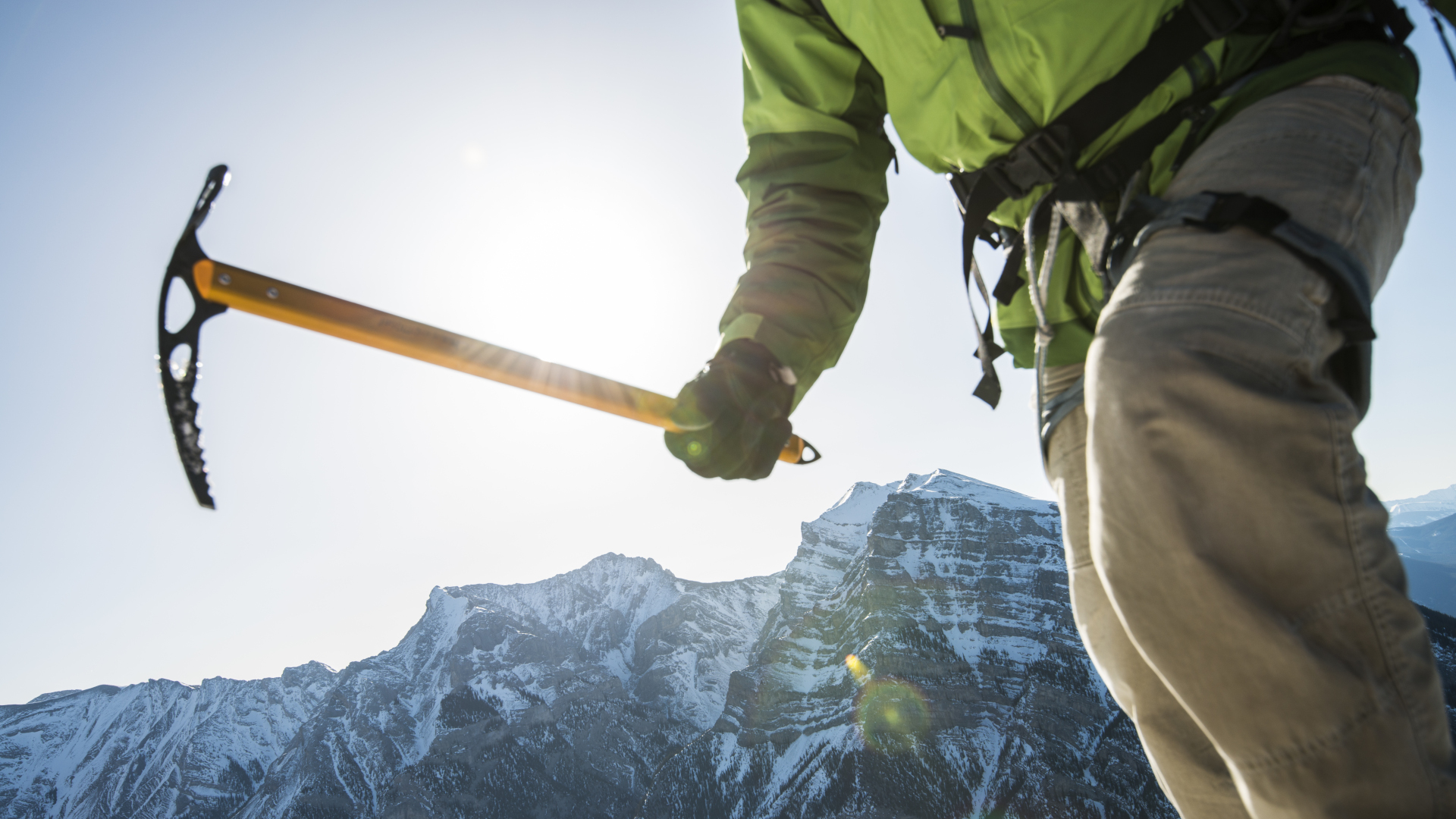
Mountaineering vs rock climbing: terrain
Rock climbing and mountaineering can take place on the same terrain, but they don’t necessarily. It will come as no surprise to you that mountaineering always takes place on a mountain, and that terrain can be covered in rock, ice or snow.
Rock climbing outdoors always takes place on rock, and of course generally takes place in mountainous or at least hilly areas, but there are lots of great low-lying crags such as the Flatirons in Boulder or the Peak District in the UK that you probably wouldn’t describe as being on a mountain. Then you’ve got bouldering, which can take place in the plains of the midwest far from any peaks and climbing that takes place in gorges and canyons in places like Moab and Zion National Park. You’ll often be in mountainous terrain when rock climbing, but not always.
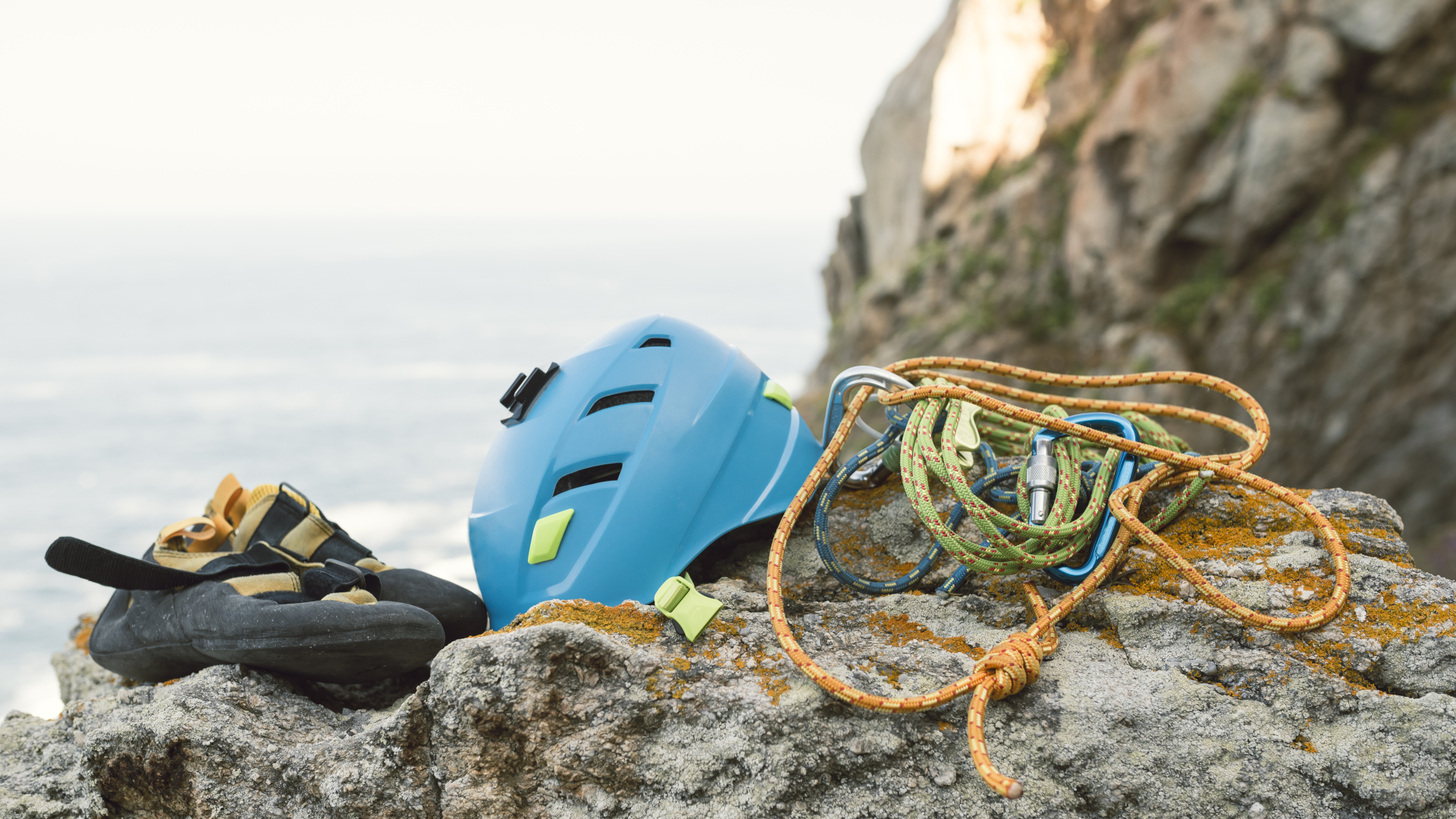
Mountaineering vs rock climbing: gear
Both rock climbing and mountaineering are equipment-heavy pursuits. For rock climbing, you’ll need a pair of climbing shoes, a harness, a climbing rope and a helmet, plus a climbing rack if you’re going trad climbing. You’ll usually be rock climbing in fair weather so your clothing is simple – a T-shirt or light base layer and something stretchy climbing pants should do it.
Advnture Newsletter
All the latest inspiration, tips and guides to help you plan your next Advnture!
For mountaineering, you might need most of this equipment, but you’ll also need walking gear such as mountaineering boots and trekking poles, and you'll need gear to tackle ice and snow, such as crampons, ice axes and screws. It’s always colder at high elevations so you’ll need to dress in winter hiking layers too.
Then you’ve got the duration of your expedition, which can mean even more gear. Rock climbing can involve an overnight stay on a cliff, which means you need cliff camping gear, but that’s unusual and rock climbing is usually a day trip. Mountaineering usually involves a base camp, and therefore requires camping gear too like a tent, sleeping bag and camping stove.
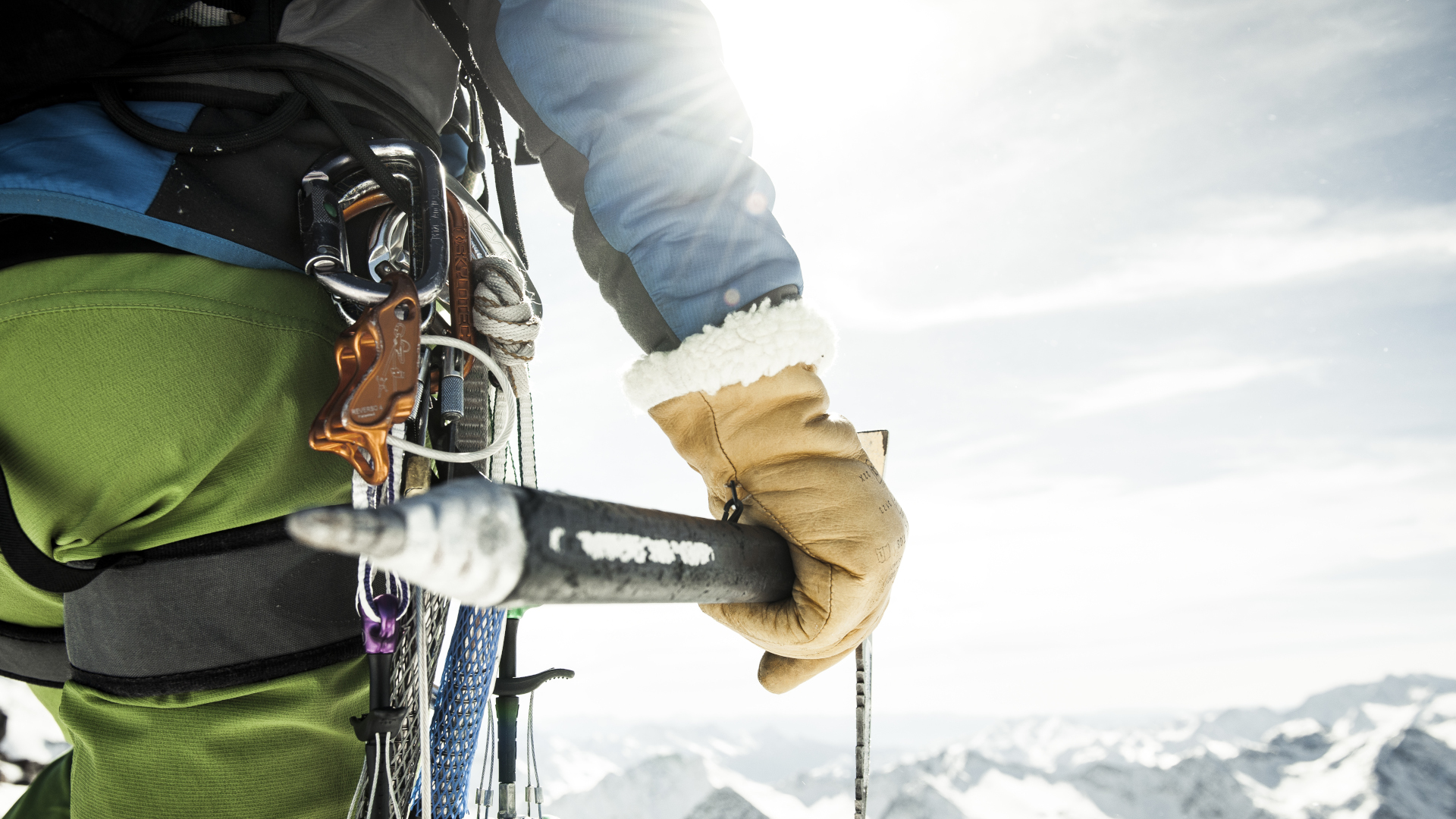
Mountaineering vs rock climbing: skills
If you’ve watched any of the best climbing films, you’ll know there’s major skill involved in both rock climbing and mountaineering. That said, you could easily argue that mountaineering requires a broader set of skills.
Whereas rock climbing skills involve knowing how to place safety gear, plot your route, and then carry out those dynamic moves to get you up a near-vertical rock face, mountaineering might involve rock climbing skills, ice climbing, dry-tooling, scrambling, bouldering, hiking skills, and even skiing. Not to say that a mountaineer is more skilful than a rock climber, but they’ll need a wider range of abilities, whereas rock climbers can really focus on a particular skill set.
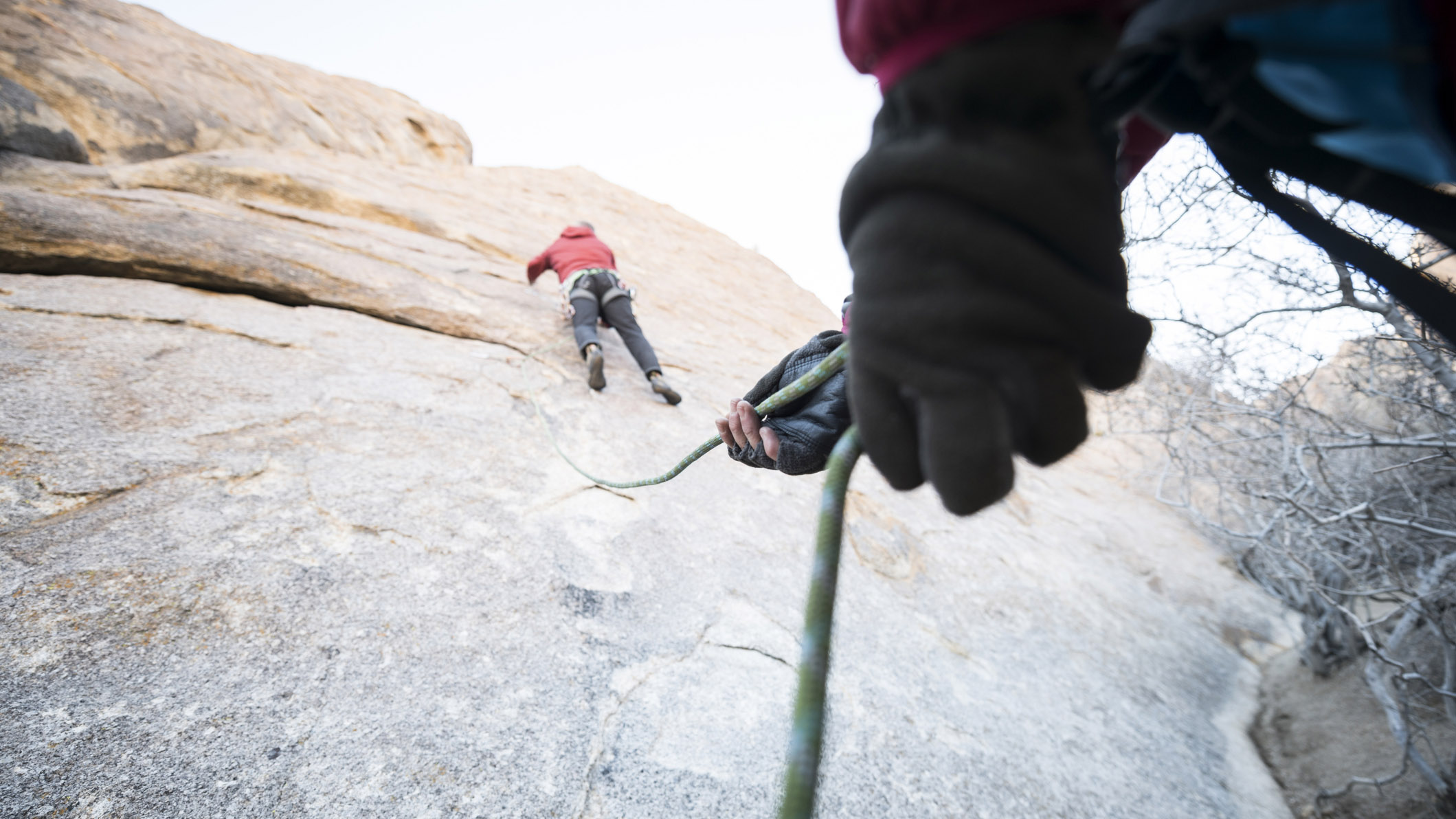
Mountaineering vs rock climbing: safety
Because accident statistics don’t differentiate between mountaineering, rock climbing, and hiking, and there’s often overlap between these three activities, it’s hard to say with any certainty that one is more dangerous than the other. That said, mountaineering is almost definitely more dangerous than rock climbing.
Rock climbing accidents do occur, and they’re mostly due to falls, which account for three-quarters of them according to a 2020 review in the International Journal of Environmental Research and Public Health. However, over 70% of falls result in non-injury or minor injuries, rather than fractures or dislocations.
Rockfall can also cause climbing injuries, which is why wearing a helmet is so important. Weather-related climbing injuries are uncommon because climbing tends to be a fair weather sport, though you might need a rabies shot if you accidentally awaken a sleeping bat.
In mountaineering, the stakes are high. You’ve got all the possible injuries that come with climbing, but you’ve also got avalanche risk, falling into a crevasse and weather-related risks such as frostbite and hypothermia to contend with. Oh, and possibly altitude sickness too.
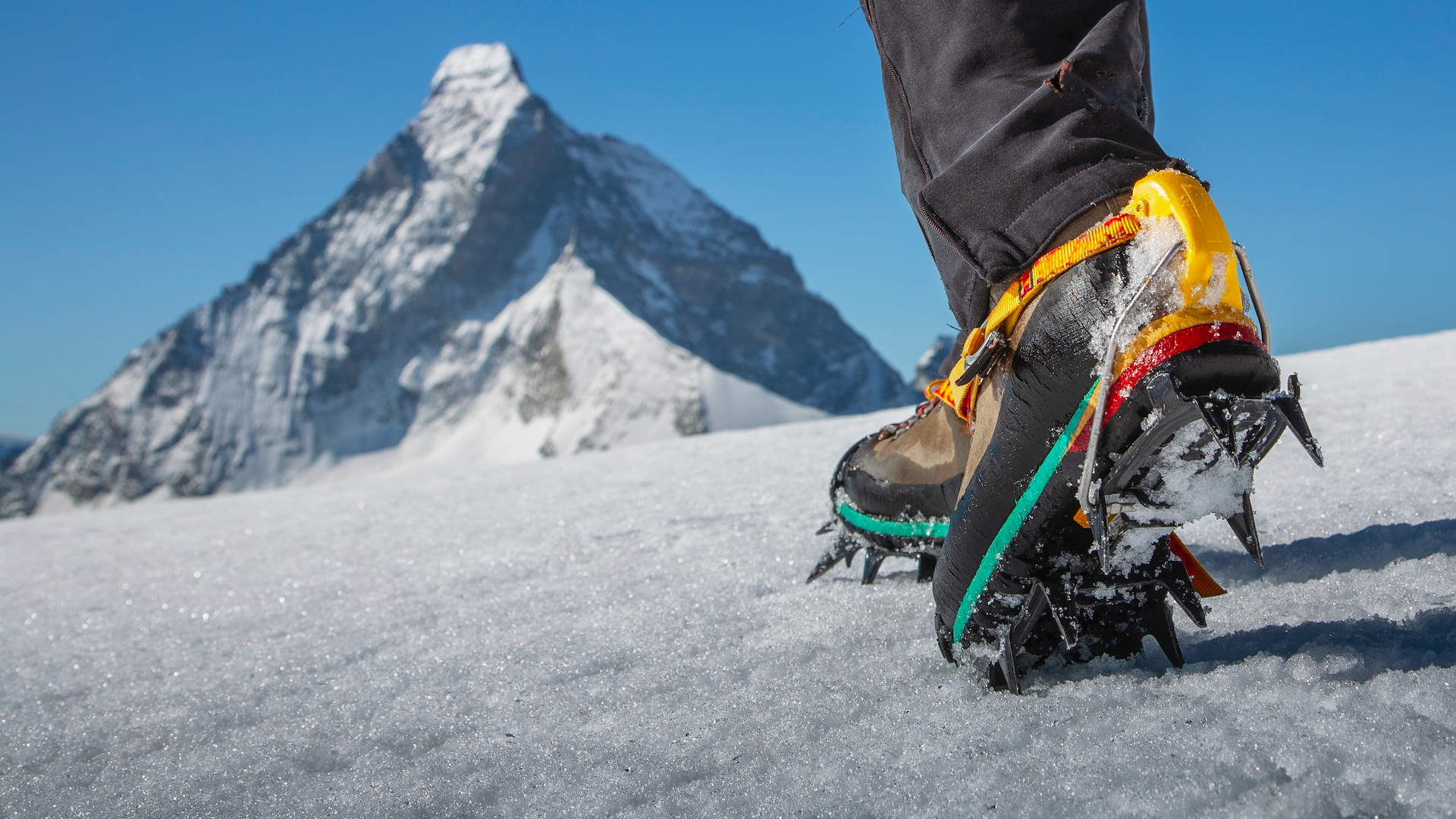
Mountaineering vs rock climbing: which is for you?
To sum up, rock climbing is a distinct sport that involves climbing rock faces. It requires less gear than mountaineering and can take place on mountains, hills, boulders, gorges and canyons. There’s a lot of skill involved in rock climbing, but it’s a well-defined, focused skill set.
Mountaineering is a general term to describe exploring mountains. It requires a lot of gear, involves many different sports, from scrambling to skiing, and entails significantly more risk.
Do you have to choose between the two? Not at all. Lots of rock climbers go mountaineering in the winter and mountaineers have to know a bit about rock climbing. In fact, mountaineering can be a great way to make your climbing season last year-round, while rock climbing is a good summer alternative for mountaineers when the ice melts. Just get out there and enjoy it.
- Best waterproof jackets: stay warm, dry, and comfortable
Julia Clarke is a staff writer for Advnture.com and the author of the book Restorative Yoga for Beginners. She loves to explore mountains on foot, bike, skis and belay and then recover on the the yoga mat. Julia graduated with a degree in journalism in 2004 and spent eight years working as a radio presenter in Kansas City, Vermont, Boston and New York City before discovering the joys of the Rocky Mountains. She then detoured west to Colorado and enjoyed 11 years teaching yoga in Vail before returning to her hometown of Glasgow, Scotland in 2020 to focus on family and writing.

